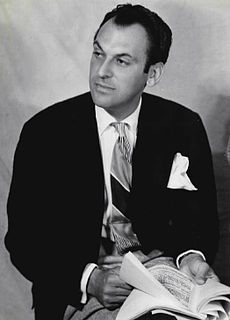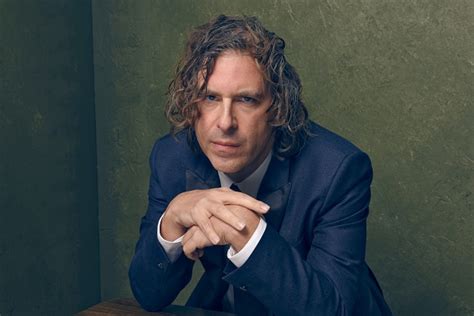A Quote by Bob Dylan
Maybe in the 90s or possibly in the next century people will look upon the 80s as the age of masturbation, when it was taken to the limit; that might be all that's going on right now in a big way.
Related Quotes
Other centuries had their driving forces. What will ours have been when men look far back to it one day? Maybe it won't be the American Century, after all. Or the Russian Century or the Atomic Century. Wouldn't it be wonderful, Phil, if it turned out to be everybody's century, when people all over the world--free people--found a way to live together? I'd like to be around to see some of that, even the beginning.
Maybe we need a tax credit for the poorest Americans to buy a laptop. Now, maybe that's wrong, maybe that's expensive, maybe we can't do it, but I'll tell you, any signal that we can send to the poorest Americans that says, 'We're going into a 21st century, third-wave information age, and so are you, and we want to carry you with us.'
[on the screenplay for "When Harry Met Sally"] It struck me that the movies had spent more than half a century saying, "They lived happily ever after" and the following quarter century warning that they'll be lucky to make it through the weekend. Possibly now we are now entering a third era in which the movies will be sounding a note of cautious optimism: You know, it just might work.
I think, at the end of the century we'll have a generation of parents and a generation of children who won't have had the deep satisfactions of being parents and being children in the way that they might have and are going to spend a lot of time fretting and worrying and being hovered over for nothing. The question isn't so much "What will happen in the long run?" but "What's happening to people's lives right now?"
There are a lot of products still to be discovered in the world and experimentation, for example with seafood and fish. There are thousands of products that we're not eating right now that maybe will be cultivated in a good agriculture situation, a sustainable, ecological way. Maybe there will be textures or flavors we hadn't even thought of. In the Amazon there are 400 fruits that are not cultivated right now. They're just incredible fruits. Textures, tastes that we don't know right now.
I think the next [21st] century will be the century of complexity. We have already discovered the basic laws that govern matter and understand all the normal situations. We don't know how the laws fit together, and what happens under extreme conditions. But I expect we will find a complete unified theory sometime this century. The is no limit to the complexity that we can build using those basic laws.
The market literature, which was particularly strong in Igboland, in Onitsha, today it is no longer strong. It is one of the victims of the civil war, that market was actually destroyed and at the end of the war a new Nigeria has struggled to come into being and I believe that what is probably going to replace the market literature might be the video, which they have taken to in a big way, creating dramas. So that may be the next thing way we will see coming out of the local basic level in our society.
That feeling in the dressing room after you win - nothing comes close to that. You can't get that in any other career. Maybe in the stock market back in the '80s when people were making tons of money, maybe they felt something similar. Maybe. But look at the market now. Nothing gives you that emotion like sports. Nothing. Am I wrong?




































